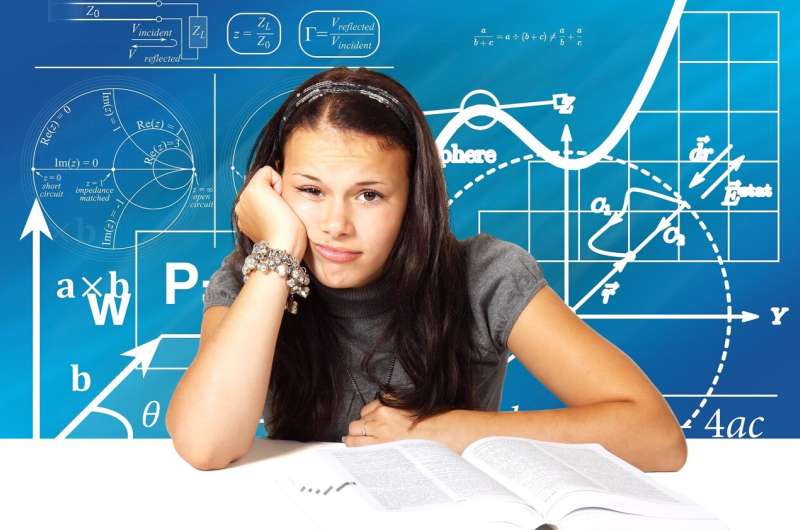This article has been reviewed according to Science X's editorial process and policies. Editors have highlighted the following attributes while ensuring the content's credibility:
fact-checked
peer-reviewed publication
trusted source
proofread
High school students' academic development linked to achievement emotions over time

School students experience a wide range of achievement emotions during the years they spend attending school. Some of those emotions, such as joy and pride, are positive. Yet students also experience boredom and anger when they find achievement activities too difficult or too easy. These differing emotions are important for adolescents' development trajectories.
Researchers from the University of Tübingen therefore asked—how do achievement emotions develop during adolescence? The research team, led by Professor Michiko Sakaki and Professor Kou Murayama from the Hector Research Institute of Education Sciences and Psychology, focused on the achievement domain of mathematics, where previous research indicates that students experience fewer positive emotions and more negative ones.
For the study, published in Child Development, the researchers analyzed data from 3,425 students in grades 5 to 9 at vocational and academic high schools in Bavaria. The adolescents were surveyed annually from 2002 to 2006 about their emotions in relation to math.
The team analyzed the potential link between adolescents' achievement emotions with regard to mathematics and their performance in the subject. The researchers found that with increasing age, students overall experience a decrease in pride. Also, even though girls generally felt fewer positive emotions about mathematics, the difference between girls and boys did not increase over time.
Furthermore, the team found that adolescents with lower initial grades experienced a smaller increase in most negative emotions and a smaller decrease in the positive emotions. These findings suggest that the widespread expectation that initial inequalities will be magnified over time does not always hold true.
This study also provides evidence for the co-development of achievement emotions and academic performance. "The results of our study emphasize the significance of emotions for learning and suggest that it is important to promote positive emotions and prevent negative emotions in order to support high school students' academic performance," explains Michiko Sakaki.
She also emphasizes the importance of students' interest in the material. The findings indicate that high school pupils who maintain high levels of interest are more likely to maintain positive emotions and less likely to develop negative emotions over time.
More information: Michiko Sakaki et al, Developmental trajectories of achievement emotions in mathematics during adolescence, Child Development (2023). DOI: 10.1111/cdev.13996
Journal information: Child Development
Provided by Universitaet Tübingen



















